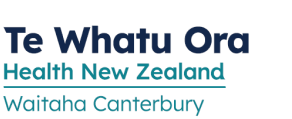What does it do?
Pergolide is used to treat Parkinson’s disease and sometimes other conditions.
Before you start
- Tell your doctor if you have heart, lung, liver, kidney, stomach or high blood pressure problems, migraines, diabetes, a mental health problem, had a stroke, or ever had a seizure.
- Tell your doctor if you are pregnant, planning to become pregnant, or breastfeeding.
How should you take it?
Take pergolide as directed with a glass of water. Swallow the tablets whole.
What if you forget a dose?
If it is nearly time for your next dose, skip the missed dose and take your next dose at the usual time. Otherwise, take the missed dose as soon as you remember. Do not take two doses at the same time.
Can you take other medicines?
Some medicines available without a prescription may react with pergolide including:
- some antihistamines (may be in anti-allergy, anti-nausea and cough/cold medicines)
- anti-nausea medicines (e.g. prochlorperazine, hyoscine (e.g. Scopoderm TTS®), meclozine (e.g. Sea-legs®)
Tell your pharmacist or doctor about all medicines or treatments that you may be taking, including vitamins, herbal products (e.g. kava) or recreational drugs (e.g. "P").
What side effects might you notice?
| Side Effects | Recommended action |
|---|---|
|
Seizures, dizziness, fainting, headache Fast or irregular heartbeat, chest pain, trouble breathing |
Tell your doctor immediately |
|
Drowsiness, trouble sleeping Changes in vision, changes in smell Confusion, hallucinations, mood changes Strange or uncontrolled movements Cold hands and feet, swollen feet or legs |
Tell your doctor |
|
Constipation, nausea, loss of appetite Dry mouth, changes in taste, nasal stuffiness Muscle pain or cramps, tiredness or weakness More interest in sex |
Tell your doctor if troublesome |
If you notice any other effects, discuss them with your doctor or pharmacist.
Other information:
- Pergolide can impair your ability to do tasks such as driving or using machines. Alcohol makes this worse. Discuss your risk with your health professional. (search NZTA - Are you safe to drive?)
- Limit alcohol intake. You may have increased alcohol-related side effects while taking pergolide (e.g. dizziness or stomach upset).
- Do not stop taking pergolide without talking to your doctor first.
This leaflet contains important, but not all, information about this medicine.
Prepared by the MyMedicines Committee at Christchurch Hospital, Te Whatu Ora - Waitaha, New Zealand. March 2023
For more general information about this sheet and its contents, see: What does a My Medicines sheet cover?
Te Reo Māori
Te Reo Māori information sheets supported by Health Quality and Safety Commission New Zealand
Web links for this sheet in different formats
Click on buttons to copy web addresses for this leaflet:
If your browser does not automatically copy these links use its copy command instead.
About My Medicines
My Medicines Patient Information Leaflets (PILs) contain important, but not all, information about the medicines they describe.
For more information about the sheets, see: What does a My Medicines sheet cover?
My Medicines is developed by a team at Te Whatu Ora – Waitaha. Our team is made up of doctors, pharmacists, and a non-medical person to help us keep to plain language. We also discuss our information with specialist health professionals or groups when needed

